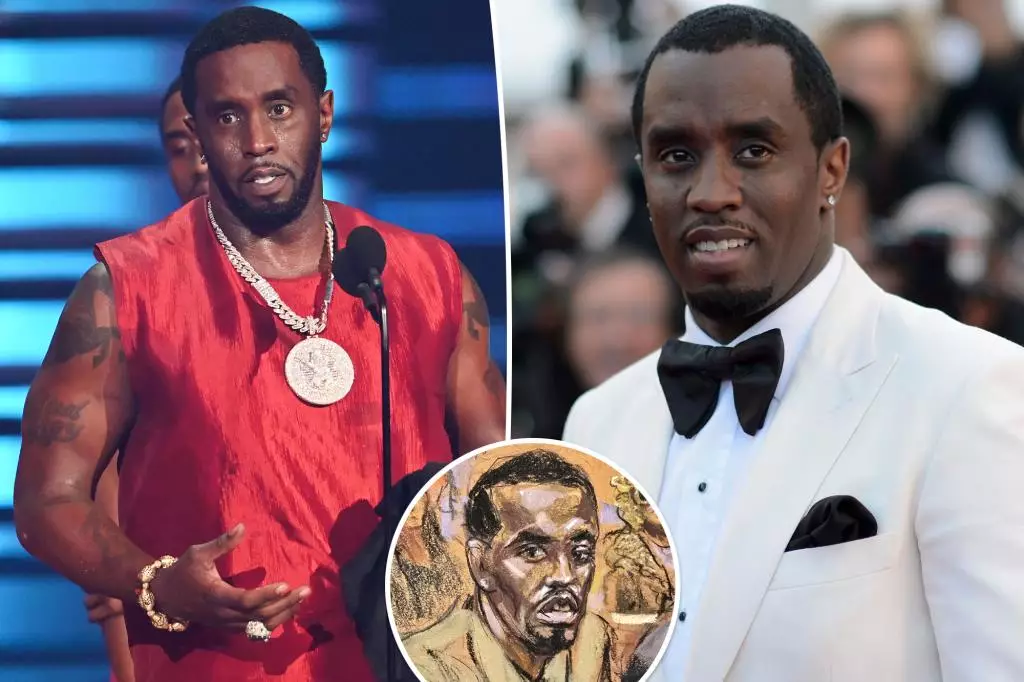In recent months, the legal landscape surrounding sexual assault allegations has gained renewed attention, particularly regarding high-profile figures. A notable case revolves around Sean “Diddy” Combs, who faces accusations of sexual assault originating from a party nearly two decades ago. A ruling by Judge Mary Kay Vyskocil in the Southern District of New York has brought to light the delicate balance between the rights of the accuser to maintain anonymity and the legal imperative for transparency in cases where serious allegations of misconduct are made.
Legal Ruling and Its Implications
Judge Vyskocil’s decision mandates that the woman, who has been identified as Jane Doe in legal proceedings, must disclose her name or else face the dismissal of her case. This ruling highlights a significant tension in legal systems: while there is a recognized right to privacy for victims of sexual assault, particularly in sensitive cases, this right must also be weighed against the public interest in the judicial process. Vyskocil acknowledged the woman’s desire for privacy, citing the personal distress and social risks tied to her accusations. However, she also noted that filing such a grave lawsuit against a public figure requires a degree of accountability on the part of the accuser, particularly when the allegations are of such severity.
The judge’s opinion reflects a fundamental principle of justice: that defenders of the accused also deserve the opportunity to prepare a proper defense. Given the high stakes involved for both parties, the court maintains that anonymity cannot be guaranteed indefinitely in a legal battle involving significant public interest and serious allegations.
In her lawsuit, the anonymous accuser claims that an invitation to an afterparty led to an assault at a New York City hotel in 2004, where Combs allegedly threatened her and her friend. This incident forms part of a broader series of allegations against Combs, which encompass a range of accusations involving multiple alleged victims and span across three decades. With the representation of Texas-based attorney Tony Buzbee, who is representing at least 120 individuals similarly claiming to have suffered abuses, the legal pressure on Combs mounts.
Combs’ legal team, however, has categorically denied any wrongdoing, asserting that the lawsuits are unfounded and that their client has never engaged in such behavior. This vocal defense is crucial as the trial draws nearer, scheduled for May 5, 2025, coinciding with the high-profile Met Gala, further intertwining the realms of celebrity and accountability.
Public Perception and Media Scrutiny
The media’s coverage of sexual assault claims, especially those involving celebrities, raises questions about public perception and its influence on judicial processes. Combs’ case is particularly complex as it exists in a charged atmosphere where both social media and traditional news contribute to the public narrative surrounding the allegations.
The potential repercussions for Combs, exemplified by the significant legal and social pressures, showcase the stark reality that public figures face when confronted by claims of this nature. The doubled-edged sword of celebrity means that while fame can amplify a voice, it can also lead to public vilification, regardless of the ultimate verdict.
The current climate in which Combs finds himself is emblematic of a larger societal movement regarding sexual accountability that has gained traction over recent years. Many survivors are now feeling empowered to come forward with their stories, yet they face immense challenges in a system that often prioritizes anonymity. The pressures on individuals like “Jane Doe” to maintain privacy while engaging in legal procedures complicate an already fraught journey toward seeking justice.
Furthermore, the allegations made against Combs follow his previous relationship with Cassie Ventura, who also accused him of severe misconduct — highlighting a troubling pattern that has emerged in his personal and professional life. The outcome of these cases could have lasting implications not only for Combs but also for the culture surrounding allegations of sexual misconduct, potentially shaping the narratives for how such claims are treated in the future.
As the legal proceedings unfold, the transparency versus anonymity debate continues to challenge the justice system. The ruling requiring Jane Doe to identify herself illustrates the complexities and pressures inherent in sexual assault litigation, particularly against powerful figures. The implications for public discourse, media scrutiny, and the rights of victims will resonate far beyond the courtroom as society strives to reconcile the need for justice with the protection of individual dignity.

Leave a Reply